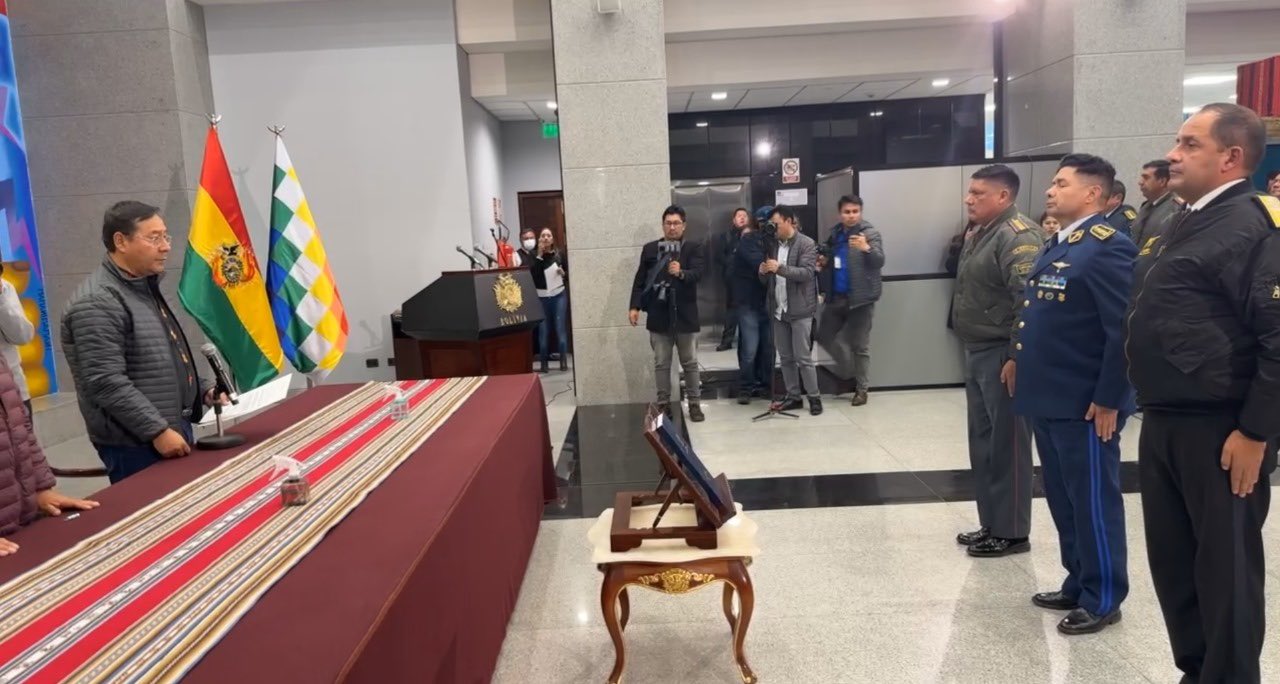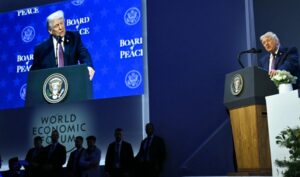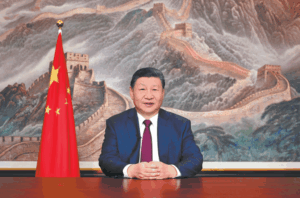
Published 06/27/2024 20:52 | Edited 06/28/2024 00:17
Last Wednesday (26), Bolivia faced yet another attempted military coup, the 194th in its history, deepening an already tumultuous political crisis. General Juan José Zúñiga, former commander of the Bolivian Army, led a military mobilization that surrounded the Presidential Palace in La Paz, in an action that resulted in clashes and heightened tensions. This event not only threatened the country’s democratic stability, but also exposed deep internal fissures within the Bolivian Armed Forces.
The day after the coup attempt, Bolivia saw political tensions rise. President Luis Arce celebrated his victory with a raised fist, while security around the presidential palace was tightened. General Juan José Zúñiga, who led the coup attempt, was arrested and faces up to 20 years in prison. The economic crisis, exacerbated by shortages of dollars and fuel, is also contributing to social discontent.
During the program Red Between the LinesAna Prestes, sociologist and secretary of International Relations at PCdoB, gave an interview to Guiomar Prates, editor of Red Portal, to assess the climate the day after the coup. She describes the attempt as an opportunistic reaction amid a context of political and economic disputes.
She notes that Bolivia, under the leadership of President Luis Arce, has faced significant challenges, including post-pandemic recovery and internal debates over economic management, especially regarding the industrialization of lithium, a strategic resource.
Ana Prestes highlighted that this failed attempt is a reflection of the recurring instability in Latin America. She compared the event to the successful 2019 coup, emphasizing the differences in the current context. “It was an attempt to intimidate President Luis Arce, mainly by disgruntled military sectors,” Ana said.
Impact on government stability
Regarding the Bolivian government’s reaction, Ana noted that, although the coup was thwarted, the situation increased internal instability. “The government is stronger for having overcome the coup attempt, but it needs to investigate who collaborated internally and who it can trust within the Armed Forces,” she said.
The coup attempt exposed disputes within the ruling party itself, the Movement to Socialism (MAS), between Arce and his political mentor, Evo Morales. The political dispute between Arce and Evo Morales, his predecessor and political mentor, adds layers of complexity to the crisis, with potential consequences for the upcoming 2025 presidential elections.
Economic issues and interests of lithium
Ana also commented on the role of the economy in the coup attempt, especially considering Bolivia’s vast lithium reserves and President Arce’s decision to industrialize this resource. “Economic interests are always present and create tensions, especially within the MAS. However, there is no concrete evidence of external support for the military aiming to seize these resources,” she explained.
President Luis Arce, strengthened by popular and international support, still has to deal with an acute economic crisis, characterized by shortages of dollars and fuel, exacerbating internal divisions in the country.
International solidarity
Regarding the importance of global solidarity with the Arce government, Ana reinforced the relevance of immediate support: “Rapid solidarity helps to constrain those who try to violate democracy. The immediate response of the international community and popular mobilization were crucial.”
The coup attempt was promptly repudiated internationally, with expressions of support from various political leaders and multilateral organizations, highlighting immediate solidarity as a crucial factor in containing the crisis.
International repercussion
The world press highlighted the coup attempt and the subsequent arrest of General Zúñiga. Media outlets such as the BBC, Le Monde and The Guardian reported on the political and economic crisis in Bolivia, while the New York Times and The Economist covered the country’s turbulent history and the internal disputes within the MAS.
The coverage highlighted Bolivia’s turbulent history with more than 190 coups since its independence, highlighting the ongoing challenge of stable governance and economic development.
In short, the attempted coup in Bolivia has highlighted a deep crisis that goes beyond immediate political issues, affecting the country’s economy and social cohesion. As the Arce government seeks to restore normality, tensions persist, reflecting a scenario of ongoing uncertainty and challenges for Bolivian democracy.
This episode serves as a reminder of democratic vulnerabilities in Latin America and the need for international support to strengthen democratic institutions and promote stability in times of crisis.
Source: vermelho.org.br

